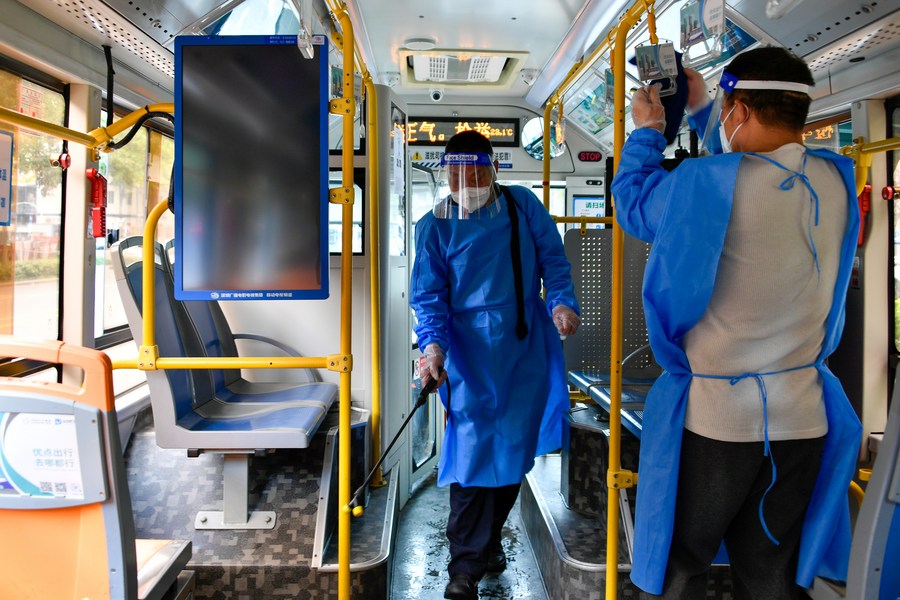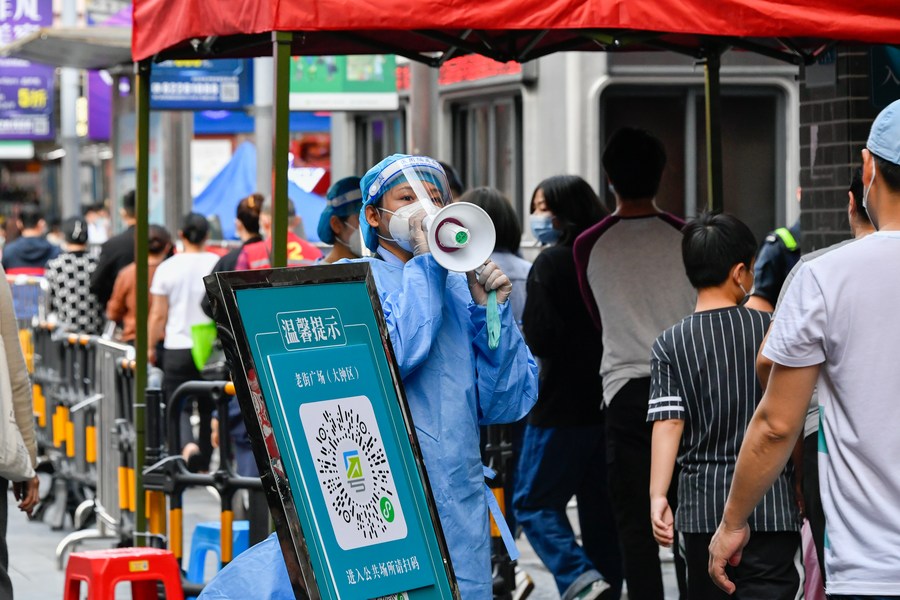As the latest resurgence of COVID-19 slows down the pace of life in China's Pearl River Delta, joint efforts are being made to ensure the region's supply chain stability.

Authorities and enterprises in the region, which is China's manufacturing hub, have implemented a slew of measures to mitigate the impact of the latest outbreak on production and business operations.
DECISIVE, SWIFT RESPONSE
In the southern Chinese metropolis of Shenzhen, strict and meticulous prevention and control measures have been implemented since March 13 to contain the spread of the virus.
Measures including the suspensions of bus and subway systems were adopted.
Communities and industrial parks were also placed under closed management, according to the Shenzhen COVID-19 prevention and control headquarters.
Such stringent anti-virus measures have proved effective and helped curb the spread of COVID-19 infections, thus ensuring the resumption of normal life.
As the number of new COVID-19 cases declined steadily, Shenzhen adjusted its prevention and control measures accordingly.
The city on Friday resumed normal life and production in five districts, including Guangming and Pingshan, wher the community spread of the coronavirus has been contained.
Besides, government offices, enterprises, and businesses in Shenzhen are set to resume normal work and production from Monday as the latest COVID-19 resurgence subsides, local authorities said on Sunday.
The city will also resume bus and subway services from Monday. Authorities are rolling out measures to ensure the safety and stability of industrial and supply chains, and orderly life and work for locals.

SAFEGUARDING SUPPLY CHAINS
At the New Industries Biomedical Engineering Co., Ltd. (Snibe) in Shenzhen's Pingshan District, over 1,300 staff members lived and worked under closed management to maintain normal production throughout the latest outbreak.
Snibe is a biomedical company specializing in clinical laboratory instruments and in vitro diagnostic reagents, providing products to more than 7,700 medical institutions in China and exporting to 147 countries and regions.
"In order to ensure the testing services carried out by over 20,000 medical institutions around the world, our company overcame difficulties and kept our production lines operational," said Ding Chenliu, Snibe's deputy general manager.

Snibe is just one of the companies in the region that has strived to ensure smooth operations amid the latest COVID-19 resurgence.
At the Luk Ka green packaging and printing industrial park in Qiaotou Township of Dongguan City, south China's Guangdong Province, the local government set up temporary nucleic acid sampling sites to offer testing services to nearly 2,000 employees from over 30 companies in the park.
Local authorities also guided the park through its closed management and the issuance of entry and exit documents for enterprises with transportation needs, making every effort to ensure efficient COVID-19 prevention while safeguarding production.
"With the help of the government, we prepared accommodation and food for our employees in advance, so that they could live and work in the park without worry," said Ma Songmian, an executive of Luk Ka International Ltd.
The local government provided targeted, professional and considerate support to enterprises when coordinating prevention and control work with economic development, said Bai Xuefeng from the Shenzhen-based company Sunwoda Electronic Co., Ltd.
"With such strong support, we have full confidence in the stability of the industrial and supply chains," Bai said.
"We will continue to step up targeted services for enterprises, including measures such as white lists, daily nucleic acid testing, and closed-loop management," said Huang Qiang, deputy secretary-general of the Shenzhen municipal government, at a press conference on Saturday.
"We are committed to ensuring stable production and supply, and striving to maintain the security and stability of industrial and supply chains," Huang said.

